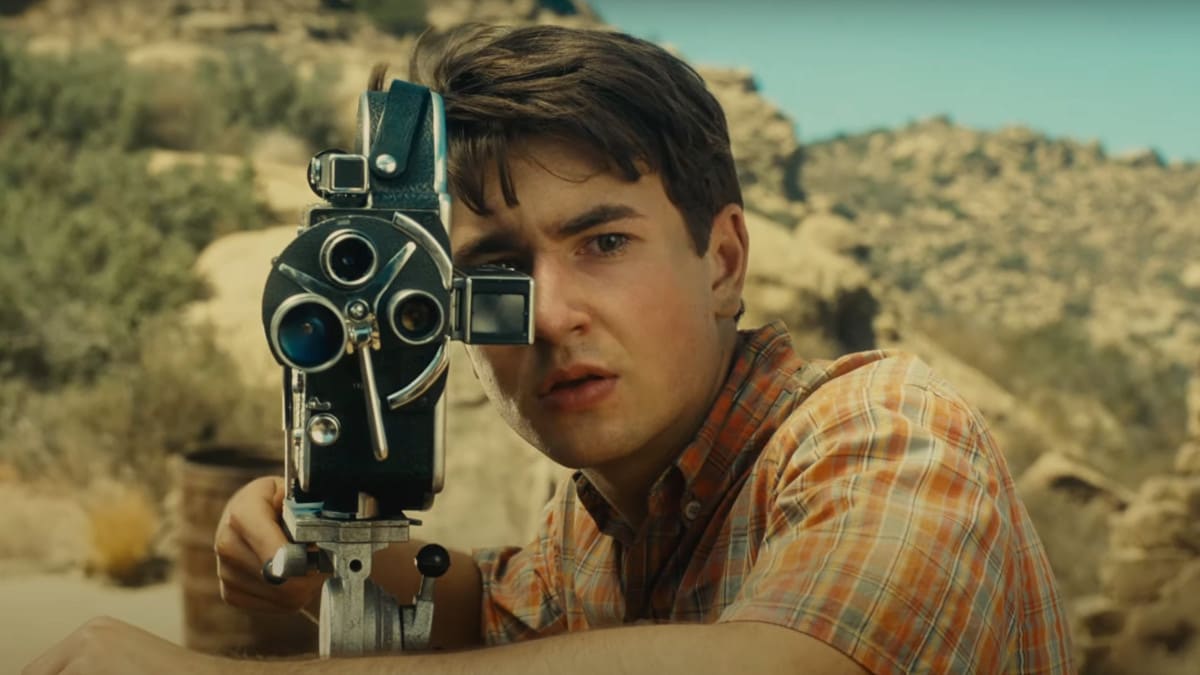Judging from the pre-release information surrounding Steven Spielberg’s The Fabelmans, it was clear the endeavor could attain the label of the master director’s “most personal film.” Now that it has finally arrived, with a world premiere at the 2022 Toronto International Film Festival, it is clear this prediction was no lie. It is obviously personal, yes, but also deeply autobiographical. Any Spielberg fan knows these beats: an early fascination with cinema; the move to Arizona; a difficult parental dynamic, with a driven father and loving-but-conflicted mother; ambitious 8mm films made with sisters, neighbors, and anyone else willing to lend a hand; a much less pleasant move from Arizona to California; teenage years fueled by creativity, but also impacted by a feeling of outsider status; and, ultimately, the first steps into a world he would eventually dominate.
The Fabelmans checks all boxes, but it is not merely Portrait of Spielberg as a Young Man. This is also a warm, moving drama about the need to make art, whatever its cost. Sam (Gabriel LaBelle), the Spielberg stand-in, sees no other option. Filmmaking is not, as his father maintains, “a hobby.” Nor is it passion he’ll push to the side for the sake of family, as his pianist mother was forced to do. The Fabelmans is Spielberg’s explanation of why he is who he is, now and forever. It is also one of his most rich and rewarding family tales yet.
This is not one of his ordinary-people-in-extraordinary-circumstances films à la Close Encounters, E.T., or War of the Worlds. What might be most striking about The Fabelmans is how normal the experiences of young Sam play for the audience. It begins in 1952 as Sam’s parents, Mitzi (Michelle Williams) and Burt (Paul Dano), bring the boy to his first big-screen movie—fittingly, the widescreen spectacle of enjoyable hokum that is The Greatest Show on Earth. What hits young Sam the hardest is the unforgettable train crash. Soon he is asking for a train set for Hanukkah and creating his own little railway catastrophes on his father’s camera.
Burt is a complex figure––loving yet stern, and different from Mitzi in almost every way. Burt keeps his emotions inside, whereas Mitzi is all emotion, even when it hurts. Sam carries bits of all traits, sometimes seeming closely linked to his father, other times his mother. It is fascinating to watch Spielberg pull back the curtain on his life as a child, warts and all. In addition to Sam’s sisters and grandmothers, “uncle” Bennie––actually his father’s (and mother’s) close friend––is omnipresent. Seth Rogen plays Bennie as someone who brings real levity to the household yet turns out to be integral to issues the family faces.
The entire family contributes to Sam’s filmmaking, even more so once they move to Arizona. This land of dry heat and desert is ideal for Westerns and war movies, both of which Sam makes with striking ingenuity. Once in his teenage years Sam is played by the sweet, remarkably assured LaBelle. By this point the act of moviemaking courses through Sam’s veins. Indeed, as his mother’s brash uncle Boris (a scene-stealing Judd Hirsch) explains, the need to create art is in Sam’s genes.
From this moment on Sam’s world becomes increasingly splintered. His parents face a marriage crisis and Sam discovers that the camera sometimes captures moments meant to be hidden. It’s that push and pull between art and family that Boris referenced, and it will become increasingly difficult for Sam to choose sides. Things become even thornier when the family uproots once again, this time to California.
LaBelle, Williams, and Dano truly excel in this final chunk. And so do Spielberg and his co-author, the great Tony Kushner. It is best not to spoil how the film concludes, but it is both surprisingly subtle and dramatically bold. Spielberg avoids the over-emotional payoff that has often upended the late stages of his recent films. He and Kushner realized the true ending of Sam’s (and Steven’s) story is many, many years away; what’s onscreen is only the conclusion of the first part of its protagonist’s life. So, smartly, Spielberg wraps things up with a delightful sequence (one that should not be spoiled) and a genuinely winning final gag. It is a daring way to end—precisely the right decision for the scope of this tale.
Every Spielberg feature, from The Sugarland Express to West Side Story, reveals elements of its creator’s passions. (The elements of of Ready Player One felt downright smothering.) Not until now, though, has Spielberg filmed what is essentially a memoir. It must be acknowledged that even though Spielberg fandom is not essential for enjoying the film, it helps. Sam’s story is universal, yes, but the real emotional pull from The Fabelmans comes from knowing that everything here––the short films created with, as Spielberg put it after the debut, “spit and glue,” the family strife, even high school bullying––led to an ability to create some of the most successful and beloved movies ever made. The warm, witty Fabelmans is Spielberg at his most revealing, and watching him reflect on his past is downright extraordinary.
The Fabelmans premiered at the Toronto International Film Festival and will open on November 11.

